STATEHOUSE REPORT | ISSUE 20.48 | NOV. 26, 2021
BIG STORY: Culture wars on rise for 2022 election
NEWS BRIEFS: Bill would reform heritage commission appointments
LOWCOUNTRY, Ariail: Looking for books
COMMENTARY, Brack: We know better, but we don’t act appropriately
SPOTLIGHT: Conservation Voters of South Carolina
FEEDBACK: Hammer away at harm of school vouchers
MYSTERY PHOTO: Jet lake
Culture wars on rise for 2022 election
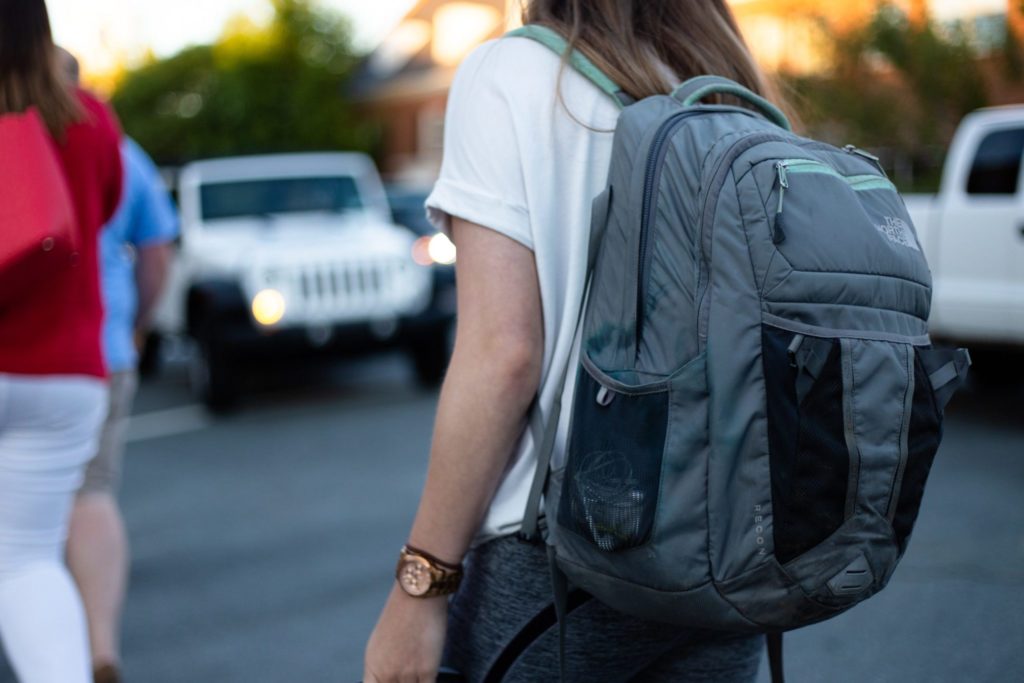
By Sam Spence | South Carolina voters next year will elect a new state superintendent of schools for the first time since 2015 as education issues stoke divisive and controversial political debates that show no sign of simmering. With the open state superintendent seat, along with the governor’s race and congressional races on ballots, how will education affect South Carolina’s 2022 election season?
Schoolkids and their classes have long been the battlefield for adults’ culture wars, from the 1925 Scopes trial over teaching evolution to more recent fights over books like the memoir, Fun Home. But State Superintendent Molly Spearman’s tenure is winding down as students, teachers and families trudge out of the pandemic that created classroom chaos that wore on even the toughest educators.
Those experiences will leave a mark, said Steve Nuzum, a Columbia teacher and research director for the advocacy group SC for Ed.
“Teachers are even more exhausted than before, more under attack thanks to fake controversies and the ongoing pandemic and working in schools that are more understaffed than any time during my 15-year career,” he told the City Paper.
Education is often a top issue among voters, but recent frenzies put teachers and students in the spotlight as politicians look to stir up voter bases.
Just this month, Gov. Henry McMaster waded into the culture war du jour, becoming the latest GOP governor to take aim at Gender Queer, an illustrated memoir in some school libraries that includes graphical depictions of sexual acts. Republicans in Virginia and Texas have also seized on the book.
McMaster isn’t the only one in S.C. Charleston-area Republican state Rep. Lin Bennett filed a bill last week that would severely limit classroom instruction regarding sex and gender identity, as well as penalize teachers judged to have omitted details from materials or interjected personal beliefs, among other things.
Showdowns at local meetings
Local school board and city meetings have also become showdowns for anti-mask parents this fall, ratcheting up the energy around classroom issues.
Education controversies even bubbled up in a discussion of what to do with the former monument to John C. Calhoun, when one city commissioner zeroed in on the 1619 Project, a New York Times series examining early American racism that conservatives have vowed to preemptively block from school curricula. And when Charleston City Council was debating how to handle recommendations to root out systemic racism in the city, all it took was a mention of the 1619 Project and critical race theory to ultimately sink any earnest discussion of what to do.
May not trickle up
But even as the state narratives mirror national talking points, College of Charleston political science professor Kendra Stewart doubts it will trickle up to affect top-ticket races.
“In general, the other statewide constitutional officers’ races do not garner much attention or attract their own following enough to influence the governor’s race,” she told the City Paper. “I do not think that a more conservative school superintendent candidate would bring out enough supporters to do anything for the governor’s race — but you never know in S.C.!”
It’s a critical time for state schools, Nuzum said, as education faces pressure from reform-minded groups intent on expanding acceptable uses for taxpayer money within private schools.
“I think public school systems are at an inflection point: Either the public will step up to defend them, or we’ll collectively let a minority of community members and outside interest groups damage them in order to push agendas like privatization,” Nuzum said.
The leader of one of those groups Nuzum said, is Ellen Weaver, the president of the conservative Palmetto Promise Institute think tank who has already announced she will run to replace Spearman.
Palmetto Promise’s policy pitches don’t stray too far from rank-and-file conservative talking points, but focus heavily on education.
In an op-ed Sunday in The State kicking off her campaign, Weaver pledged to uproot the “one-size-fits-all system” by cutting bureaucracy and shifting education dollars.
“Divisive political agendas,” Weaver wrote, “have no place in our classrooms.”
But with S.C. schools living on scraps for a generation, those deficiencies can help drive the objectives of groups like Weaver’s, Nuzum said.
“These interests rely on failures in understaffed, micromanaged and underfunded schools,” he said, “to push the narrative that the best solution is vouchers or private takeovers.”
Sam Spence is editor of the Charleston City Paper, where this story first appeared.
- Have a comment? Send to: feedback@statehousereport.com.
Bill would reform heritage commission appointments
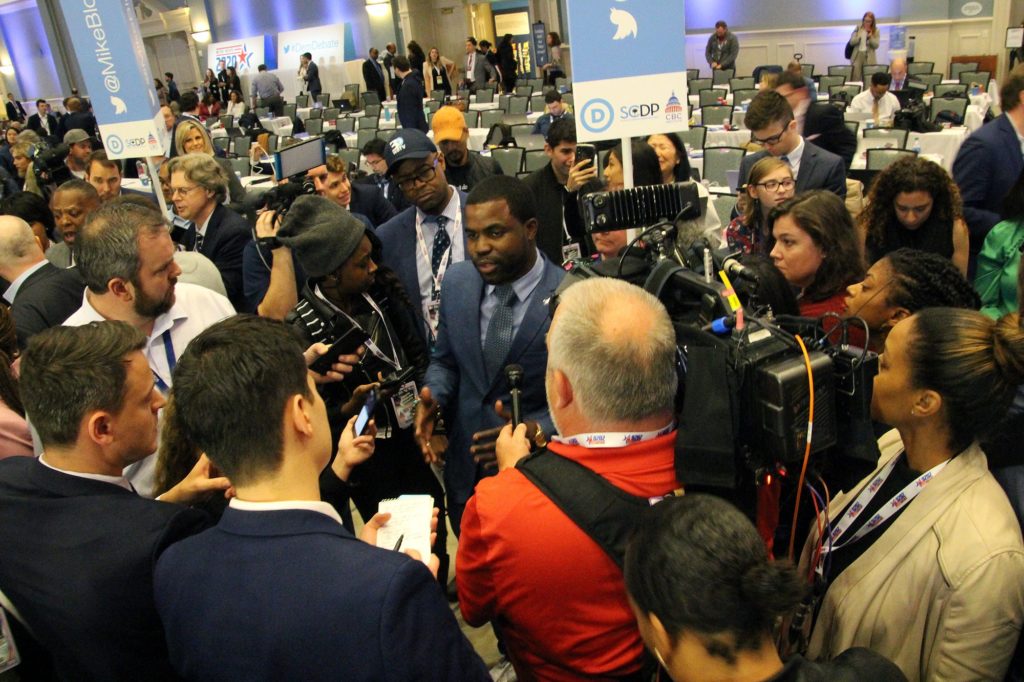
Staff reports | If a bill prefiled by state Rep. J.A. Moore becomes law, the method to make appointments to the S.C. African American Heritage Commission (SCAAHC) would mirror other state boards and commissions, according to a story in the Charleston City Paper.
Instead of the S.C. Commission of Archives and History having the authority to decide who sits on SCAAHC the presidents of the state’s seven historically Black colleges and universities would recommend appointments with staggered terms with the approval of the governor.
Moore, a Democrat from Berkeley County, describes his bill as a clerical change to bring SCAAHC appointments in line with those of the SCCAH. The presidents of the state’s predominantly white universities recommend appointments to the SCCAH. The change is being sought after Michael Allen of Mount Pleasant and Jannie Harriot of Hartsville were abruptly removed in October from the SCAAHC, which promotes the preservation of Black history and culture.
This brief is by veteran S.C. journalist Herb Frazier, special projects editor for the Charleston City Paper.
In other recent news:
![]() S.C. justice leaders react to Brunswick convictions. Murder convictions of three men Wednesday for the shotgun-killing of Ahmaud Arbery in Brunswick, Georgia, is being considered a major victory for justice in America that nearly brought the Rev. Nelson B. Rivers to tears. Although video evidence showed Arbery, an unarmed Black man jogging through a white neighborhood, was killed because he was Black, the guilty verdicts were not guaranteed, said Rivers, pastor of Liberty Hill’s Charity Missionary Baptist Church in North Charleston. “This is still America,” said Rivers, a vice president with the National Action Network. Read more reactions.
S.C. justice leaders react to Brunswick convictions. Murder convictions of three men Wednesday for the shotgun-killing of Ahmaud Arbery in Brunswick, Georgia, is being considered a major victory for justice in America that nearly brought the Rev. Nelson B. Rivers to tears. Although video evidence showed Arbery, an unarmed Black man jogging through a white neighborhood, was killed because he was Black, the guilty verdicts were not guaranteed, said Rivers, pastor of Liberty Hill’s Charity Missionary Baptist Church in North Charleston. “This is still America,” said Rivers, a vice president with the National Action Network. Read more reactions.
USC Lady Gamecocks unanimous No. 1. choice. After a dominating win this week over the No. 2 women’s basketball team from the University of Connecticut, the No. 1 USC Gamecocks were the unanimous pick as the nation’s top women’s team in the new Associated Press poll. More: Associated Press, ESPN
Nuclear plant in S.C. remains offline after malfunction. A week after a malfunction sparked a fire at V.C. Summer nuclear plant in Jenkinsville, the plant remained offline. About 250,000 customers in the state receive power from the plant but it has other generation available when nuclear operations are offline. Dominion Energy officials have not provided a timeline for when it will return to service. More: The Post and Courier.
Calculator says S.C. has great air quality but bad for abortion rights. A new quality-of-life calculator looks at why people are moving to certain states and what those states have to offer. Take the quiz or just see where South Carolina ranks. More: The New York Times
19 holes discovered at Charles Pinckney National Historic Site. Park officials say a person likely used a metal detector and dug 19 holes at the Charles Pinckney National Historic Site on Sullivan’s Island this month. It is both illegal to dig at a national site and use a metal detector. The site is the former plantation of one of the signers of the U.S. Constitution, Charles Pinckney. More: AP News
- Want more headlines every business day that are like this? Visit our friends at SC Clips.
Looking for books
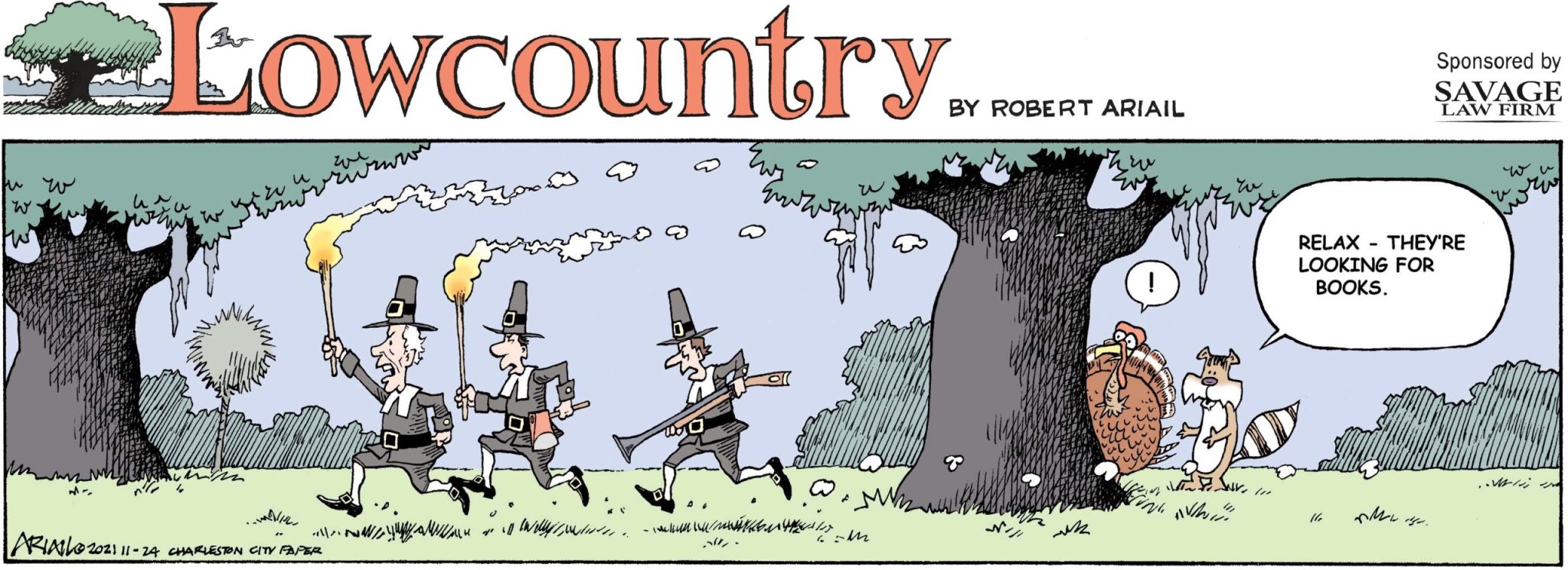
Cartoonist Robert Ariail always has an interesting take on what’s going on in South Carolina. His weekly “Lowcountry” strip is originally drawn for our sister publication, the Charleston City Paper. Love the cartoon? Hate it? What do you think: feedback@statehousereport.com.
We know better, but we don’t act appropriately
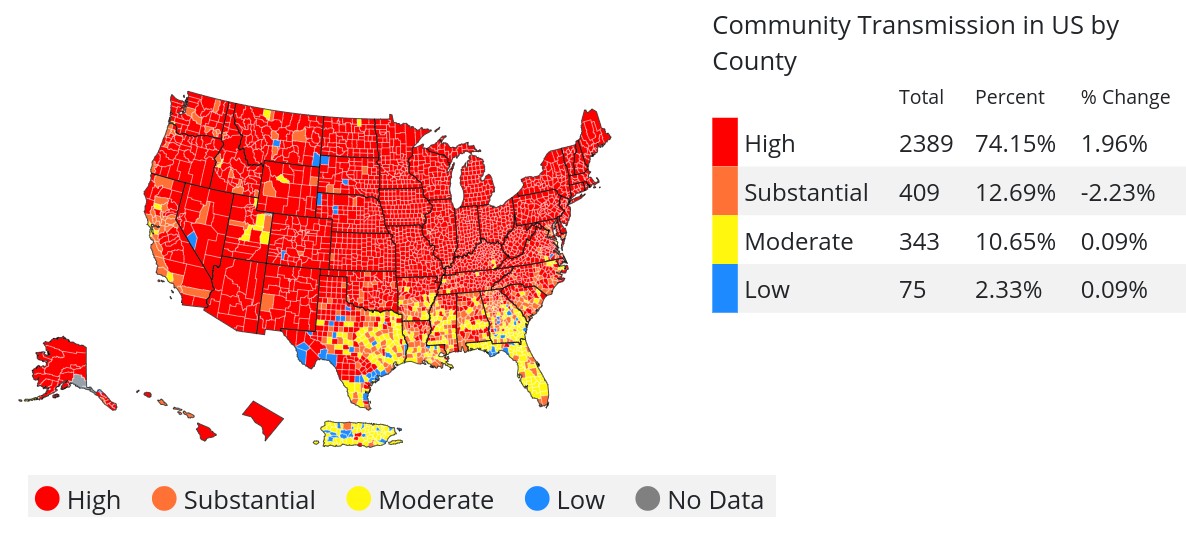
By Andy Brack, editor and publisher | There’s a big difference between knowing something, understanding it and doing something about it.
 The coronavirus pandemic illustrates this trichotomy perfectly. For example, we know it’s smart to wear masks to reduce transmission of the virus. But if you walk around any bar, restaurant or grocery store in South Carolina today, it’s clear we don’t understand the reality. Rather than doing what we know is right (to keep wearing masks), we ignore what we know and act as if everything is hunky-dory.
The coronavirus pandemic illustrates this trichotomy perfectly. For example, we know it’s smart to wear masks to reduce transmission of the virus. But if you walk around any bar, restaurant or grocery store in South Carolina today, it’s clear we don’t understand the reality. Rather than doing what we know is right (to keep wearing masks), we ignore what we know and act as if everything is hunky-dory.
It’s not. If you routinely watch a map of virus hot spots, it’s crystal clear the virus is about to make another surge in South Carolina. A map of the United States, for example, shows a slow approach of the virus toward us from states with high levels of COVID-19. Right now, for example, South Carolina has a comparatively low rate of positive coronavirus tests — in the 5 percent range over the last couple of weeks.
But look at where it’s already gotten cold — places like the Dakotas and Minnesota. Because winter weather has returned, people are inside more and living in closer proximity, causing infection rates to surge so much that some mask mandates are back.
It’s fairly obvious that the fourth surge is headed our way, probably just in time for Christmas. But people in South Carolina, where leaders never have taken public health warnings too seriously, will do what they’ve done in the past — ignore simple behavioral changes that can save lives. More people, particularly those who refuse to get a vaccination, will die. It’s as clear as the nose on your face.
The odd thing about ignoring the reality of this disease is people have known for years how to protect themselves. A century ago during the great flu pandemic, masks were a part of American culture. The difference between now and then is that people had a sense of common good, as compared to today when the notion of individual freedom at all costs trumps any general good to society.
Ever heard of the English village of Eyam in Derbyshire? Its citizenry figured out 350 years ago how to protect other villages from spreading bubonic plague. To this day, it’s considered a case study in how to prevent disease.

In Eyam, the plague arrived in August 1665 when a bundle of flea-infested cloth arrived for a tailor. Plague-infested fleas started biting people and they died. Over the next 14 months, some 260 people out of 800 in the village — almost one in three — died horrible deaths. But two priests developed a plan to try to stop the spread of the disease. Villagers agreed to quarantine, allowing no one in or out until the disease had run its course. Next they closed the church and held outdoor services. They stopped burying dead in the graveyard and buried them quickly after they died on land near where they died. Finally, supplies from merchants and other villages were left outside the quarantine zone and paid for with money that had been soaked in vinegar. By November 1666, there was no plague in the village and it had not spread to neighboring populations.
The example from Eyam shows how uneducated people were able to beat the disease by following protocols that were new to them, but known far and wide today: quarantining, not getting too close to others, having air flow in interactions and disinfecting things.
If they can do it, we can too by using the guidelines of modern science more effectively: wear a mask in public places; wash your hands frequently; maintain social distancing; and don’t gather in large groups. And for goodness sake, get vaccinated — something people in Eyam didn’t have.
Another surge is on the way. Let’s beat it by acting on what we know, instead of ignoring it.
- Have a comment? Send to: feedback@statehousereport.com.
Conservation Voters of South Carolina
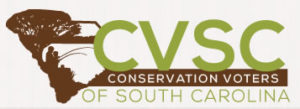 The Conservation Voters of South Carolina is a statewide nonprofit organization that fights for the Palmetto State’s air, water, land and energy through political action. The organization is bipartisan, pragmatic and effective.
The Conservation Voters of South Carolina is a statewide nonprofit organization that fights for the Palmetto State’s air, water, land and energy through political action. The organization is bipartisan, pragmatic and effective.
Through scorecards and advocacy at the Statehouse, CVSC holds South Carolina legislators accountable for their votes and actions. As a small organization that operates as a nonprofit and has a political action committee, we have a big impact. Learn more today by clicking any of the links below:
- CVSC Legislative Scorecards
- CVSC Issues
- CVSC News
- How to take action with CVSC
Hammer away at harm of school vouchers
![]() To the editor:
To the editor:
Please keep hammering on detrimental effects on public schools to have money siphoned away for private purposes. I don’t even approve of charter schools
— Mary Bostick, Columbia, S.C.
McMaster trying to manufacture outrage over book
To the editor:
You are absolutely right about what McMaster is doing. He is jumping on the bandwagon to keep the unthinking masses enraged. It’s a con. He wants to distract from what’s really important by manufacturing outrage over literature.
For someone who never has an original thought, he is leading the lemmings to the cliff and they go willingly.
It is such an embarrassment having McMaster as our state’s leader. Is this going to be his legacy? I’d like to order a copy of this book for every library in the country with a handwritten dedication to McMastrr’s inability to think for himself.
— Michael Kaynard, Charleston, S.C.
Send us your thoughts
We receive a few comments a week and look forward to publishing. But often we can’t because we can’t verify the identity of the writer. To be published, you’ve got to provide us with contact information so we can verify your letters. Verified letters to the editor are published weekly. We reserve the right to edit for length and clarity. Comments are limited to 250 words or less. Please include your name and contact information.
- Send your letters or comments to: feedback@statehousereport.com
Jet lake

Here’s an odd sight — a pond that has a peninsula formed to look like a jet. Where is it? Send your guess to feedback@statehousereport.com — and remember to include your name, home city and contact information.
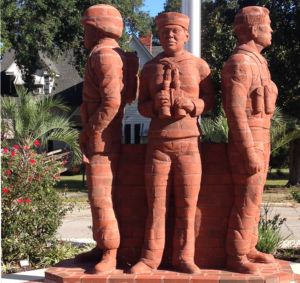 Last week’s mystery, “Monument to three,” shows a terracotta statue for veterans in Bamberg called “By Land, by Sea, by Air”, sculpted by artist Brad Spencer. Reader Elliott Brack of Norcross, Ga., sent in the photo.
Last week’s mystery, “Monument to three,” shows a terracotta statue for veterans in Bamberg called “By Land, by Sea, by Air”, sculpted by artist Brad Spencer. Reader Elliott Brack of Norcross, Ga., sent in the photo.
Several people correctly identified the piece: George Graf of Palmyra, Va.; Elizabeth Jones of Columbia; Will Bradley of Las Vegas, Nevada; Steve Willis of Lancaster; Allan Peel of San Antonio, Texas; David Lupo of Mount Pleasant; and Penny Forrester of Tallahassee, Fla.
Peel shared several tidbits about the statue, which he said was “part of the larger, Bamberg County Veterans Memorial Park that was completed in 2020 along the City of Bamberg-owned old railroad berm that runs parallel to U.S. 78. The Memorial Park was dedicated on Nov. 11, 2020 (Veterans Day) to honor each of the six branches of the United States Armed Forces (USAF) – Army, Marine Corps, Navy, Air Force, Space Force and Coast Guard. The Memorial consists of a central plaza with six smaller plazas, one each for the existing branches of the USAF. Each of the 6 smaller plazas honor a branch of the USAF. The smaller plazas feature seat walls, a single flag pole, the branch seal set into a stone marquee, engraved inspiring quotes, and the motto used by the associated branch of the USAF. The Central Plaza is the focal point of the memorial and contains three 35-foot flag poles and the brick sculpture featured in today’s mystery photo. Space for future expansion of the park is planned to accommodate future branches and monuments to those who have served in the armed forces.”
- Send us a mystery. If you have a photo that you believe will stump readers, send it along (but make sure to tell us what it is because it may stump us too!) Send to: feedback@statehousereport.com and mark it as a photo submission. Thanks.
ORDER NOW: Copies are in Lowcountry-area bookstores now, but if you can’t swing by, you can order a copy online today.
ABOUT STATEHOUSE REPORT
Statehouse Report, founded in 2001 as a weekly legislative forecast that informs readers about what is going to happen in South Carolina politics and policy, is provided to you at no charge every Friday.
- Editor and publisher: Andy Brack, 843.670.3996
Donate today
We’re proud to offer Statehouse Report for free. For more than a dozen years, we’ve been the go-to place for insightful independent policy and political news and views in the Palmetto State. And we love it as much as you do.
But now, we can use your help. If you’ve been thinking of contributing to Statehouse Report over the years, now would be a great time to contribute as we deal with the crisis. In advance, thank you.
Buy the book
Now you can get a copy of editor and publisher Andy Brack’s We Can Do Better, South Carolina! ($14.99) as a paperback or as a Kindle book ($7.99). . The book of essays offers incisive commentaries by editor and publisher Andy Brack on the American South, the common good, vexing problems for the Palmetto State and interesting South Carolina leaders.
More
-
- Mailing address: Send inquiries by mail to: P.O. Box 21942, Charleston, SC 29413
- Subscriptions are free: Click to subscribe.
- We hope you’ll keep receiving the great news and information from Statehouse Report, but if you need to unsubscribe, go to the bottom of the weekly email issue and follow the instructions.
- Read our sister publications: Charleston City Paper (every Wednesday) | Charleston Currents (every Monday).
- © 2021, Statehouse Report, a publication of City Paper Publishing, LLC. All rights reserved.



